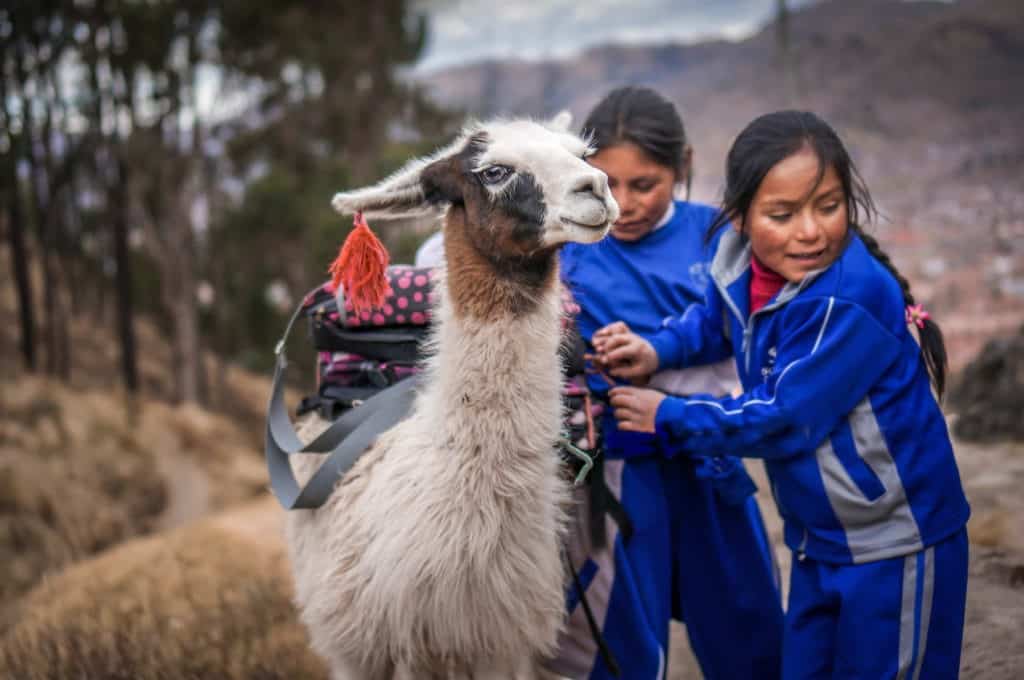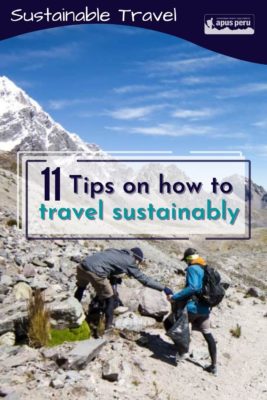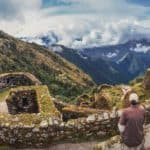In this post, besides giving you valid information about how to travel sustainably, we tell you everything there is to know about what is a responsible tourist and even share 19 tips on how to become one.
So what are you waiting for? Dive in!
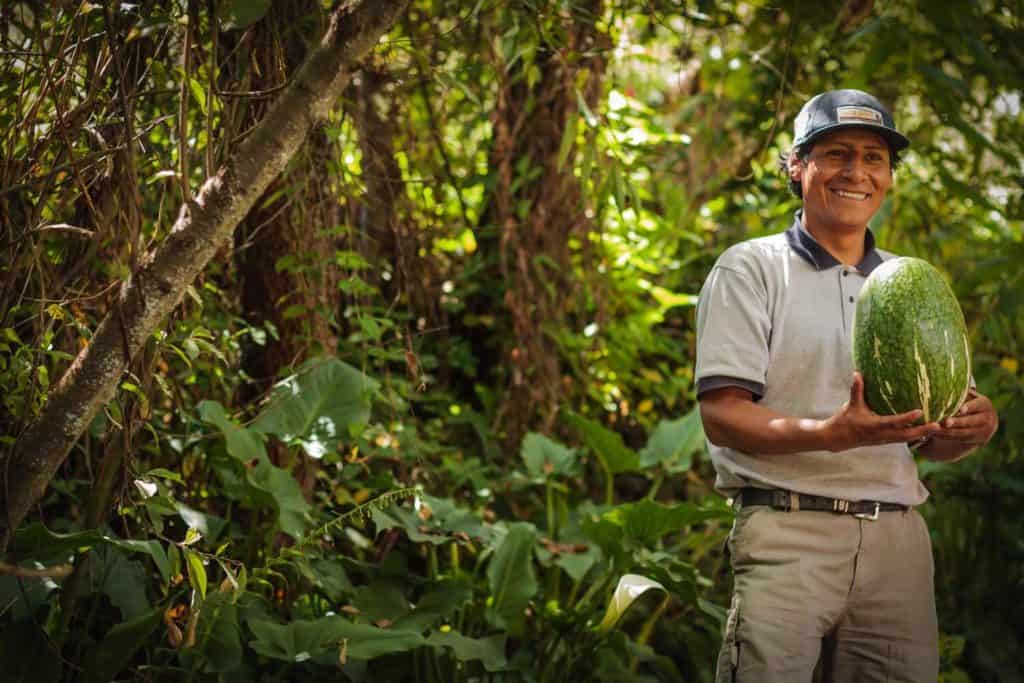
Sustainable Tourism vs Responsible Tourism: What’s the Difference
Let’s take a look at the definition of sustainable tourism given by the World Tourism Organization:
Sustainable tourism is “tourism that takes full account of its current and future economic, social and environmental impacts, addressing the needs of visitors, the industry, the environment, and host communities.”
On the other hand, responsible tourism is about “making better places for people to live in and better places for people to visit.” It’s about what we all can do – individuals, businesses and the government – to maximize positive social, environmental and economic impacts of tourism on local communities, while minimizing the negative ones. In this sense, the responsibility lies as much with the traveller as with the tourism operators and regulators to take action to make tourism more sustainable.
When comparing these two concepts, the key is looking at how to travel. Sustainable and responsible tourism both aim to improve a destination by travelling. The difference here is that responsible tourism fulfills this objective on a local and small business level, while sustainable tourism does it through the influence of leadership and big stakeholders.
The Cape Town Declaration
In 2002, the Cape Town Declaration outlined the first responsible tourism meaning. The declaration is quite long, but very inspiring and sets out some really inspirational statements. Here are our favourites, the words that we try to live by:
“Relishing the diversity of our world’s cultures, habitats and species and the wealth of our cultural and natural heritage, as the very basis of tourism, we accept that responsible and sustainable tourism will be achieved in different ways in different places”.
“We all have a responsibility to make a difference by the way we act.”
“We commit ourselves to work with others to take responsibility for achieving the economic, social and environmental components of responsible and sustainable tourism.”
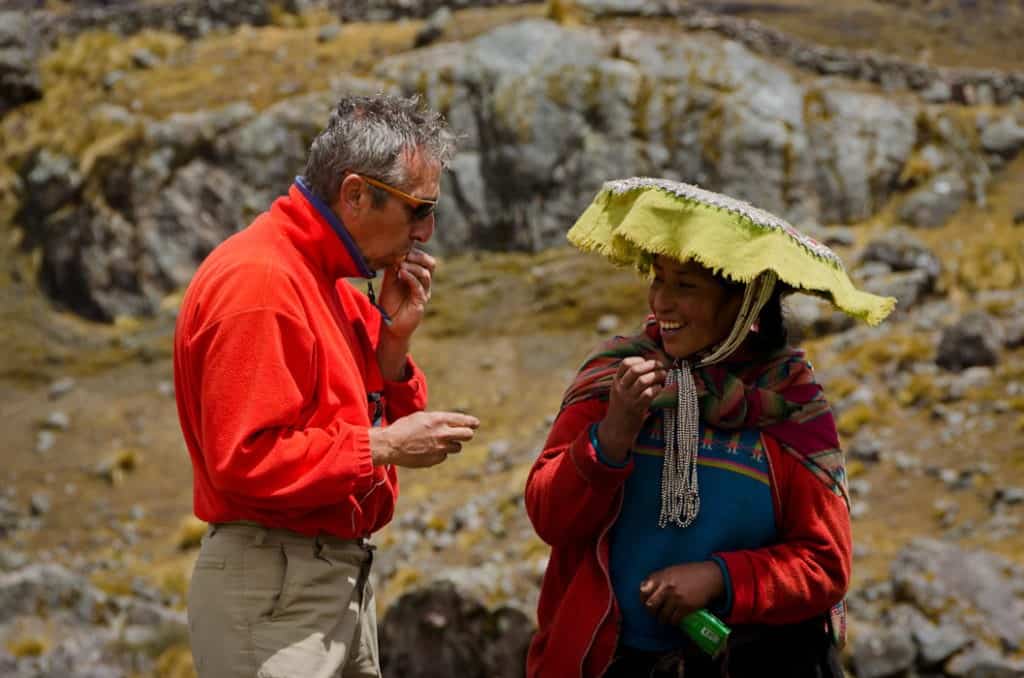
What is a Responsible Tourist? It Starts with Mindset
Being a responsible tourist starts with the right mindset and asking yourself some tough questions like, “how will I impact my destination country?” Another thing to ask yourself is, am I a tourist…or a traveller?
Are you a Tourist or a Traveller – and Does it Matter?
In short, both terms refer to people travelling abroad, and they have different connotations and that one is a broader term than the other. All tourists are travellers, but not all travellers are tourists.
In a general description, tourists want to have a good time with the “normal” travelling activities while travellers have fun by experiencing the culture, and trying to blend in with the locals. Tourists have had a bad reputation in the past as not wanting to deeply experience a culture and have only superficial experiences. We argue that all travel broadens the mind and that tourism is an extremely legitimate form of travel that has huge benefits to local economies and global understanding.
Ultimately, it doesn’t matter if you’re a tourist or a traveller; you’re on the right track as soon as you start to look at how to be a sustainable tourist when you do travel. We all have a role in making sure our actions are sustainable and don’t negatively affect local communities. So let’s start looking at ways to put those statements from the Cape Town declaration into action!
It’s All About Attitude
How can you be a responsible tourist? First of all, think about your mindset. What is your goal in travelling? Is it for you to have a good time, and enrich your knowledge, or do you wish to contribute to the places you visit in a positive way? Your goal for your travels underpins all the following aspects of being a responsible traveller.
Be Flexible
One of the best things about travelling to new places is the unexpected and often serendipitous things that can be happen. Travel with an open mind and you will not be disappointed! When plans change, go with the flow – you never know what amazing new experience it might lead to!
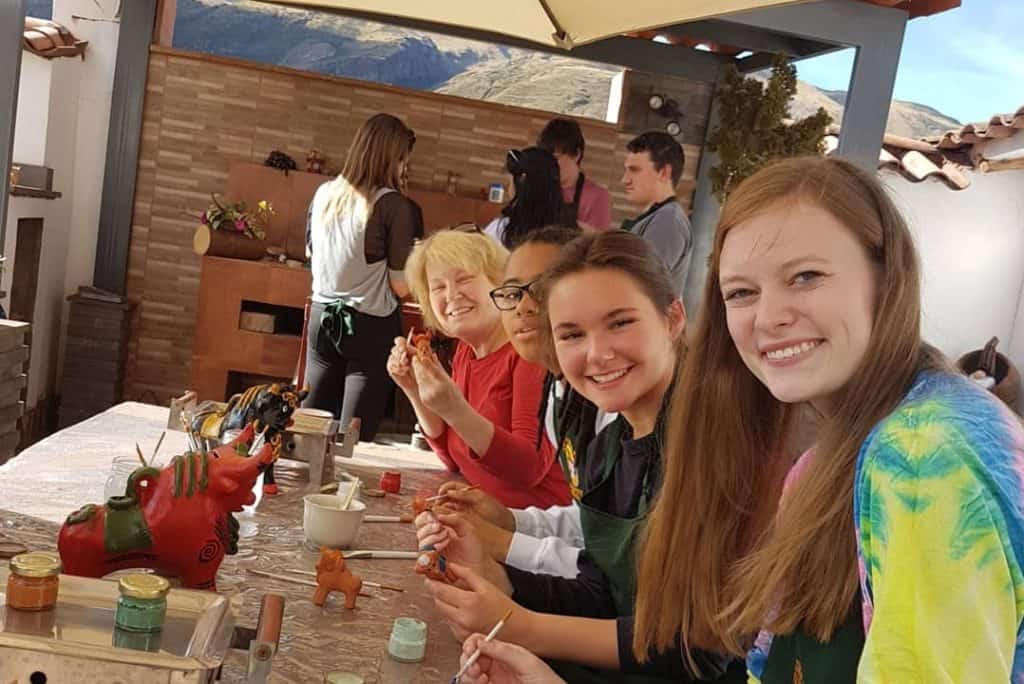
How to Be a Responsible Traveler: Planning for Slow, Conscious Travel
There are some responsible tourism practices you can follow if you are wondering how to travel more sustainably. For example, if you have already chosen your next destination, stay there for an extended period. By doing so, you will have the chance to immerse yourself into the culture, get to know the locals and explore places that not everybody visits.
Instead of planning 2-3 getaways during the year, plan to visit one destination where you peel back the layers and dig deeper. In addition, rather that flying from place to place, you can travel overland and explore places along the way. Ultimately, you’ll be rewarded with richer and more diverse experiences!
Look for Sustainable Tour Operators
It is so important to be mindful, as trek operators and as visitors, of the places we visit and the impact our actions have on the local environment, customs, and economy. Since Apus Peru was founded, we have always aimed to be a leader in sustainable travel in Peru. We were painfully aware of the terrible exploitation common all over Cusco and were determined to do things differently. That’s why from Day 1 we committed to give back to the local communities by hiring locals and supporting community development projects
Whether you are an independent traveller looking to book experiences when you arrive in your holiday destination, or whether you are pre booking much of your vacation from home, one of the first things you should look at is
- Does this operator talk about people and impact?
- Do they have a responsible tourism policy?
- If they do both, then take a look at their pricing. Compare them to other companies that espouse responsible tourism.
- Read the fine print. Are they much cheaper?
We can say unequivocally it is hard to be a sustainable travel operator in all aspects if you are cutting costs and offering cheap tours. Either the local people will be paid poorly, or have to wait long periods for pay, or the quality of the tour may not be excellent. A truly sustainable company will talk about all parts of being responsible, not just giving back to the people or employing women, or good marketing – they will talk about it all the way through their information.
Nowadays, travellers can determine which companies operate accordingly with responsible and sustainable tourism principles.
We’ve done some research for you. Here are some great examples of sustainable tourism in Peru.
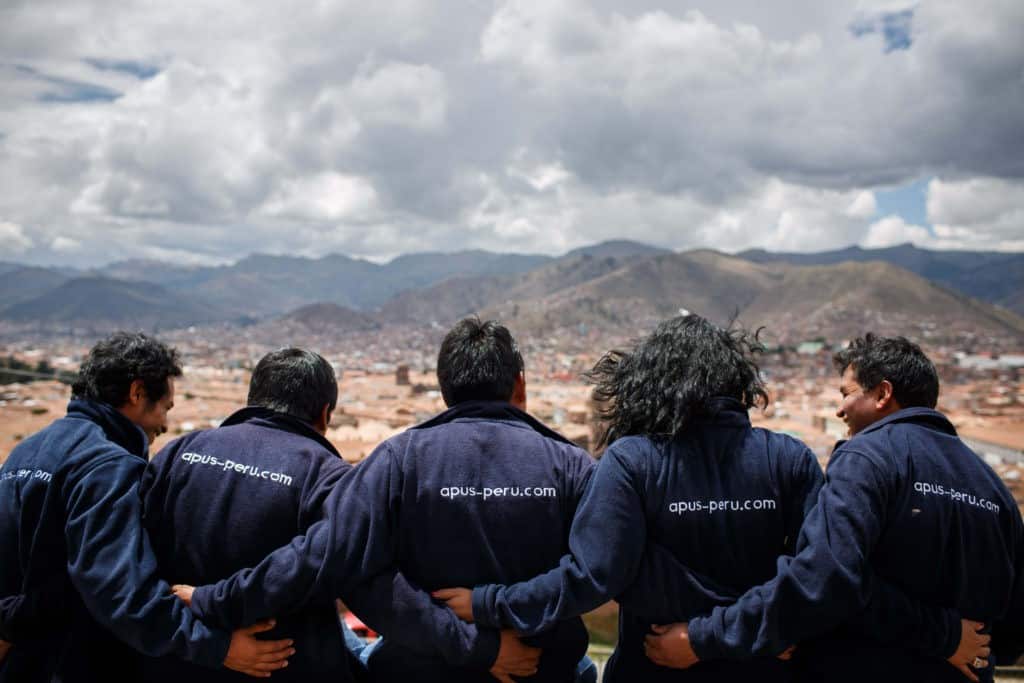
Research Sustainable Hotels or Other Accommodation
Finding sustainable hotels is not an easy task to do because there are a lot of travel companies that operate under the idea of an eco-friendly business, but it may be just a trendy marketing strategy.
So what can you do? First, you can do some research by asking the local tourism board or looking for reviews on the web. Next, there are some specific questions you can ask related to energy use, food waste, and water consumption, to find out if a given accommodation site is really green or just greenwash:
- Do they reduce their draw on energy?
- How do they reduce their water consumption?
- Do they follow any recycling procedures?
- How much of the food served is sourced locally?
Book Early!
Booking your travels in advance is an important aspect of responsible tourism, and we will explain why.
At Apus Peru, as part of our commitment to responsible tourism, we try to schedule guides, chefs, porters and muleteers at the beginning of each month. Why does this matter? Scheduling in advance builds a more balanced program for our staff, and allows them to plan – very beneficial for those with families!
For the local guides, knowing that at the start of the month they can count on a certain number of days of work relieves a lot of stress on them. It also increases job satisfaction, which also trickles down into creating a positive home environment for the whole family. (Plus, a better tour for you!)
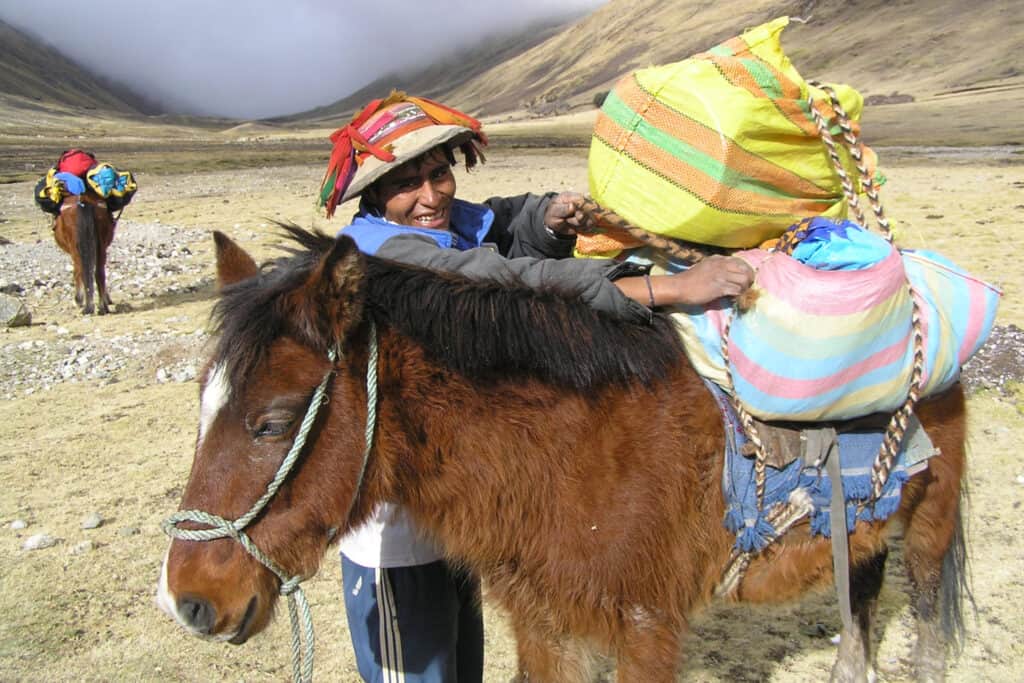
Responsible Tourist Behaviour After You Arrive
Support Local Communities
One of the best ways to be a responsible tourist is to spend money wisely at your destination. All economic income from tourism is vital for local business development as well as for many people involved directly and indirectly.
If you are wondering how can you support local communities when travelling, here are some ideas for you to keep in mind.
- Visit local restaurants and taste authentic traditional food. Behind every recipe, there is usually a story related to Peruvian culture.
- If you are satisfied with the service you are receiving, tip appropriately.
- Buy local! When looking for souvenirs explore the local shops and craft markets where you can find incredible products made by local communities from different towns.
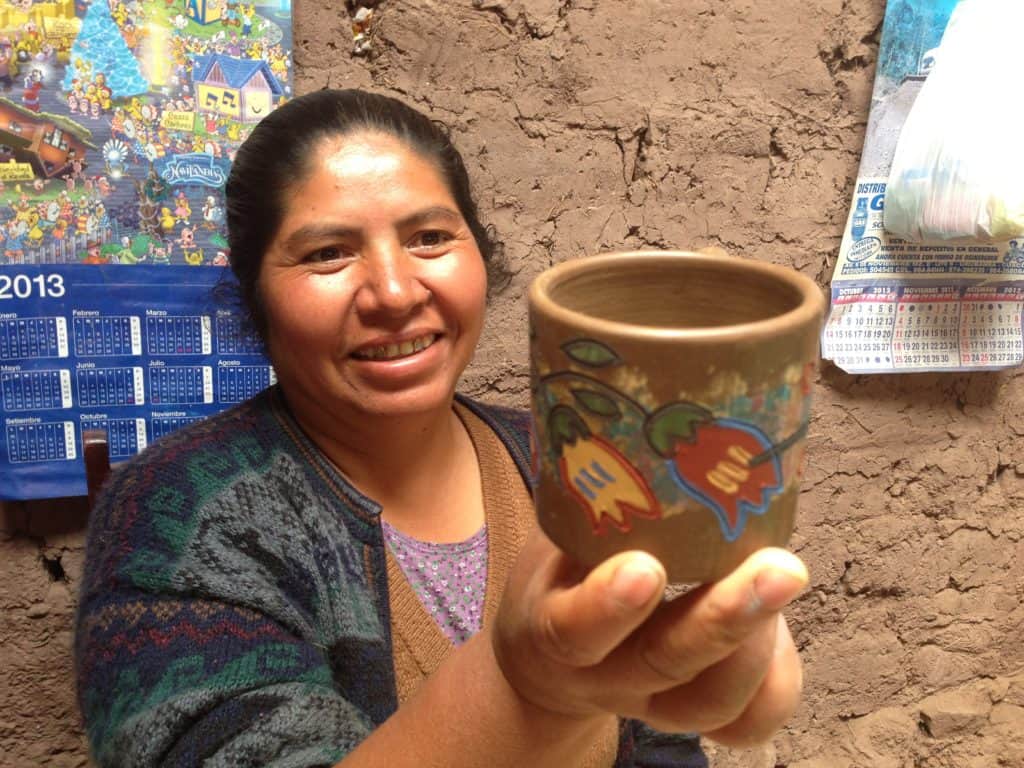
Be a Good Shopper
Many visitors to Peru come with the expectation of finding really good deals. While in the urban centres it is often okay to bargain a price down, don’t forget that the handful of soles you might be saving actually make a difference to the seller and their livelihood. In remote communities, haggling is not done and can actually seem insulting to the seller. If you are offered a price for something, it is expected you will pay that price.
Another example of how to be a responsible traveller is recognising the effort behind every product that is handmade. If you buy a souvenir from a local artisan, take a moment to think about the time spent and the skills required for making that specific item. For example, learn more about what goes into traditional Peruvian weaving.
“Smile at people, and be kind; it costs nothing.”
Dress Appropriately
Conduct that may be acceptable at home may not be in the Andes! Please be aware that things like recreational drug use, nude sunbathing, and boisterous public behaviour is not appropriate here.
Be Sensitive to Local Customs
Be aware of your own cultural values, and how they affect your judgment of others. In the Andes, different concepts of time, personal space and communication norms exist. These are not wrong or inferior, just different.
If you encounter some of these cultural differences and notice yourself getting frustrated, try to take a step back and remember that you are the one visiting this new landscape. Stepping out of your comfort zone can often lead to the most wonderful and unforgettable moments on your trip.
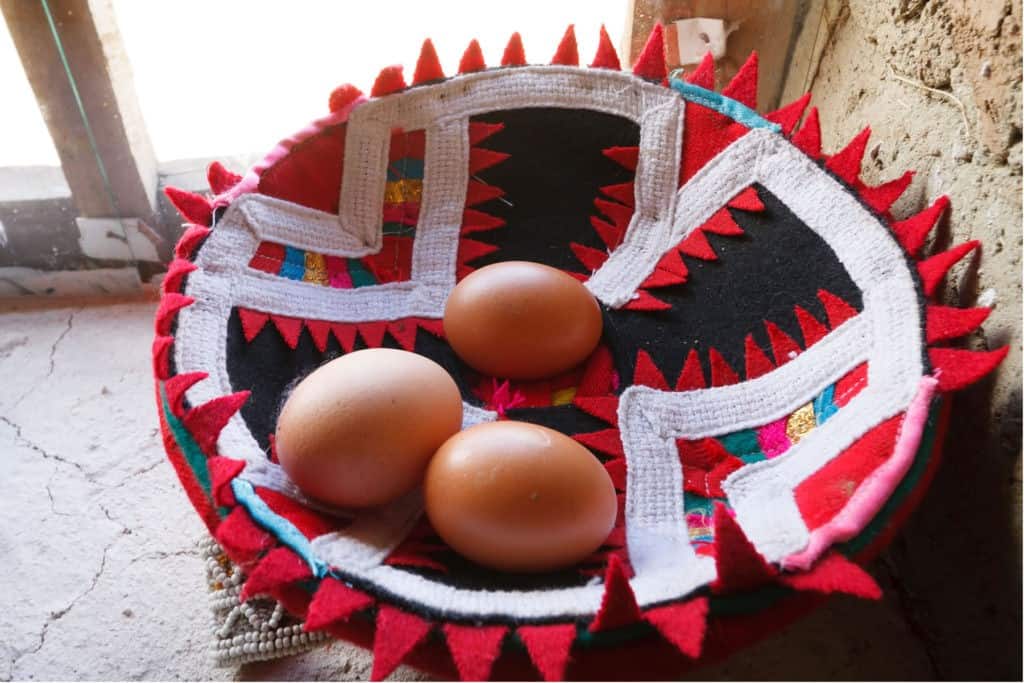
Be Respectful
As a tourist, everything is new as you’re experiencing it for the first time. It’s easy to get caught up in the wonder and exoticism of an unfamiliar place. You appreciate the beauty of monuments and marvel at the technical wonder of historical architecture, but oftentimes, we stop short of appreciating the cultural significance behind the artifact.
However, a responsible tourist will remember that some of these sites or buildings are actually still visited by locals for religious or other cultural purposes, and what looks exotic to us is just part of everyday life. Always treat the people and places you visit with respect!
- Churches are first and foremost places of worship for local residents. Please be quiet and respectful when you visit them.
- Archaeological artifacts and endangered species. It is illegal to remove archaeological objects or artifacts made from exotic or endangered species. Do not purchase or take any such items!
- Do not support businesses that utilize forced or child labour.
- SAY NO to sex tourism and human trafficking of any kind, especially those involving children and teens.
Do you really NEED that photo?
Do you like your photo being taken without your permission? Always ask first before taking someone’s photo!
Many destinations around the world, have become nothing more than Instagram photo opportunities. Monuments, natural spots, main plazas and even communities and residents are now in the spotlight. That’s why we recommend asking for permission first when taking photos of local residents. In that way, they will feel that they are being respected and appreciated. To give more value to your photo and to understand the importance of the context, try to interact with locals and you may learn some Spanish words!
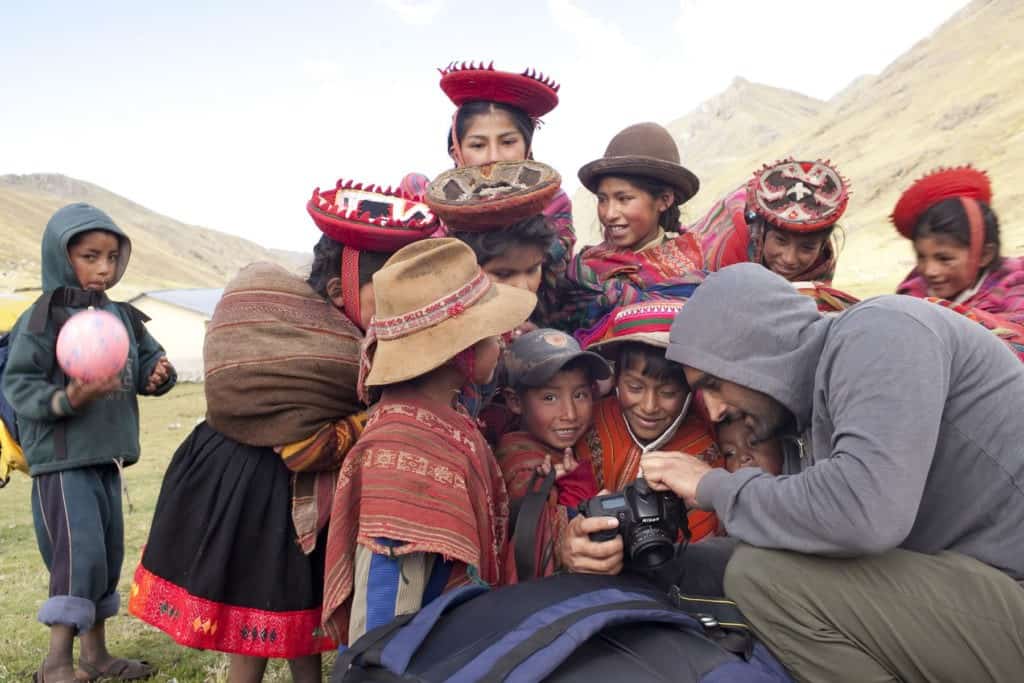
How to Be a Sustainable Tourist
The following aspects of being a responsible tourist are all more sophisticated ideas about how to travel sustainably and eco-friendly. We’ll also tell you what you should and should not do to protect the environment!
Leave No Trace
Ok, we are going to put this one right up front. You should NEVER litter.
One of the biggest things you can do to promote sustainability on your travels, especially if you plan to do any trekking, is to follow the International “Leave No Trace” Principles:
- Plan ahead and prepare
- Travel and camp on durable surfaces
- Dispose of waste properly
- Leave what you find
- Respect wildlife – this includes limiting noise and minimizing light after dark.
- Be considerate of your host and other visitors.
Follow Local Environmental Laws
Many of our treks in Peru occur in and around protected areas, and it is important that we all comply with environmental protection laws. The same goes just about anywhere you might go for a trekking holiday. A good sustainable travel company will make you aware of any restrictions or special circumstances that you should especially be aware of, and your guide should point out endangered or protected species that you encounter during your hike.
In addition, here are a few tips to take with you on the trail in order to promote environmental sustainability:
- Stay on the trail. Don’t trample delicate vegetation or remove any form of plant or animal life.
- Do not pick flowers or collect local seeds.
- Don’t approach, surround or chase animals you may observe in order to get a photograph.
- Don’t attempt to feed animals, and be careful not to leave food around the campsite.
- Relieve yourself in designated areas, or at least 70 meters from any water source. This helps to reduce the contamination of rivers, lakes, and streams.
Avoid Animal Tourism
In recent years, there has been a shift in consciousness in some parts of the world that use animals for tourism, but still, there are destinations where animals are exploited for economic benefit from tourist activities.
The World Animal Protection organization informs that more than half a million wild registered animals are part of tourist entertainment. Many tourists have had experiences where private people exploit animals to earn some extra income from tourism. That’s why is so important to be informed and share with other fellow travellers all those tips to avoid animal tourism.
- Did you know that feeding wildlife interferes with their natural diet and makes them dependent on humans?
- Riding an animal may look cool on your Instagram story but it is a tourist activity that must be avoided due to the harm and stress that it causes the animal.
- When purchasing souvenirs, make sure they are not made of animal skin, teeth, or bones.
- If you want to enjoy the beauty of wildlife respectfully, look for official tours in wildlife reserves and natural parks where you can have a good view from a proper distance.
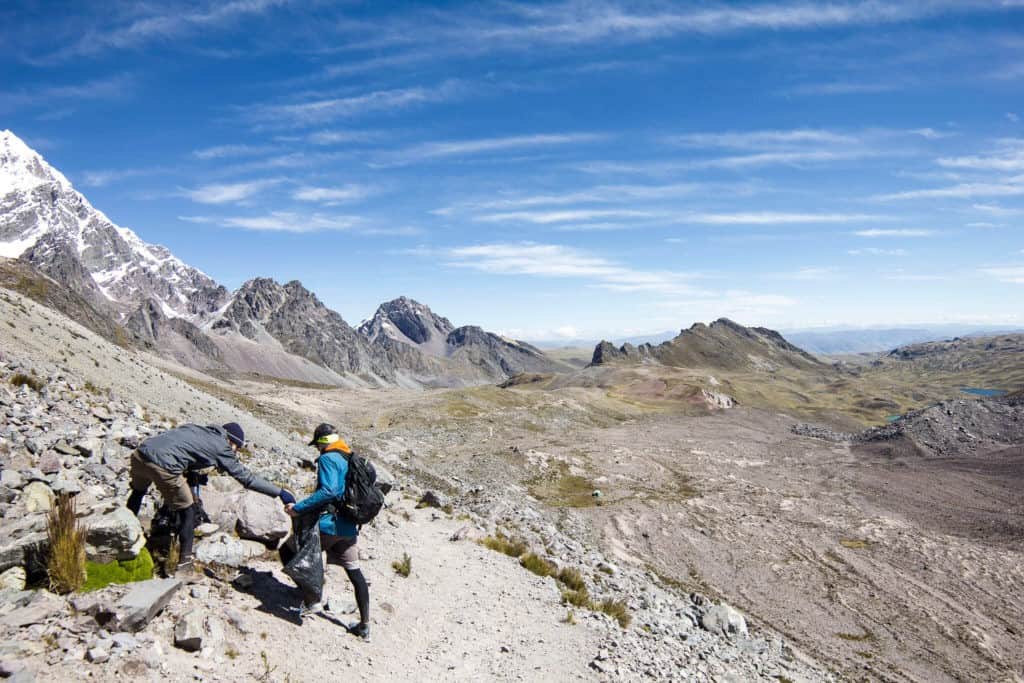
Properly Dispose of Solid Waste
Solid waste on the trail is one of the biggest environmental challenges we face: in most remote, mountainous areas, there is no garbage pickup! Apus Peru organizes monthly Clean-Up Treks where our hikers give back as they hike by collecting trash left behind by other trekkers. But in between these treks – and when you go trekking elsewhere in the world – here are some things you can do any time to help keep our trails clean and safe:
- If you see litter on the trail, collect it.
- Carry out all trash. This includes used toilet paper. We recommend bringing a resealable bag to carry it in! Before you leave the campsite in the morning, pick up any small pieces of plastic or other trash you see.
- Separate organic and inorganic waste. Many sustainable travel companies, Apus Peru included, will compost organic waste wherever possible.
Say No to Single-Use Plastics
Plastic is a huge problem all over the world. Did you know? In addition to the water that goes inside, a 1L plastic bottle takes 2L of water and 200mL of oil to produce! Nearly 200 million bottles are produced every month in Peru alone. Empty plastic bottles end up in landfills or, worse, contaminating waterways and natural environments. That’s why in all Machu Picchu areas and along the Inca Trail there is a “No Plastic” policy. See more here: Say No to Single Use Plastics!
Do your part to help address this problem and
- Carry a reusable water bottle (glass, metal, or BPA-free plastic) and fill it with boiled or treated water.
- Purchase water or soda in reusable glass bottles.
- Ask your hotel to provide water tanks (bidones) or boiled drinking water for refills.
- If you can’t avoid carrying a non-refillable plastic water bottle on the trail, please leave it with us! We will carry them back to Cusco to make sure they are properly recycled. We participate in a recycling program that helps provide employment to men recovering from addictions, helping people and the environment at the same time!
- Reduce the number of plastic bags that get used by using the cloth snack bags we provide, using your own reusable bags for groceries, or reusing plastic bags over and over instead of accepting new ones. You can also buy one of the brightly coloured “market bags” which doubles as a great souvenir!
- Say no to plastic straws! During beach clean-ups, this is the most common piece of plastic found.
Use Reef-Safe Sunscreen
If you wish to contribute to keeping ocean life happy, you can find a sunscreen that contains mineral UV-blocking ingredients like zinc oxide and/or titanium dioxide. These ingredients manage to shield the skin, so it doesn’t absorb any rays.
By contrast, regular sunscreen with chemical ingredients absorbs UV, turns it into heat, and then releases it from the skin. The chemical ingredients used in sunscreen are the main reason why corals lose their nutrients and then die. So, on your next trip to the beach look for a reef-safe sunscreen! You will find several options online.
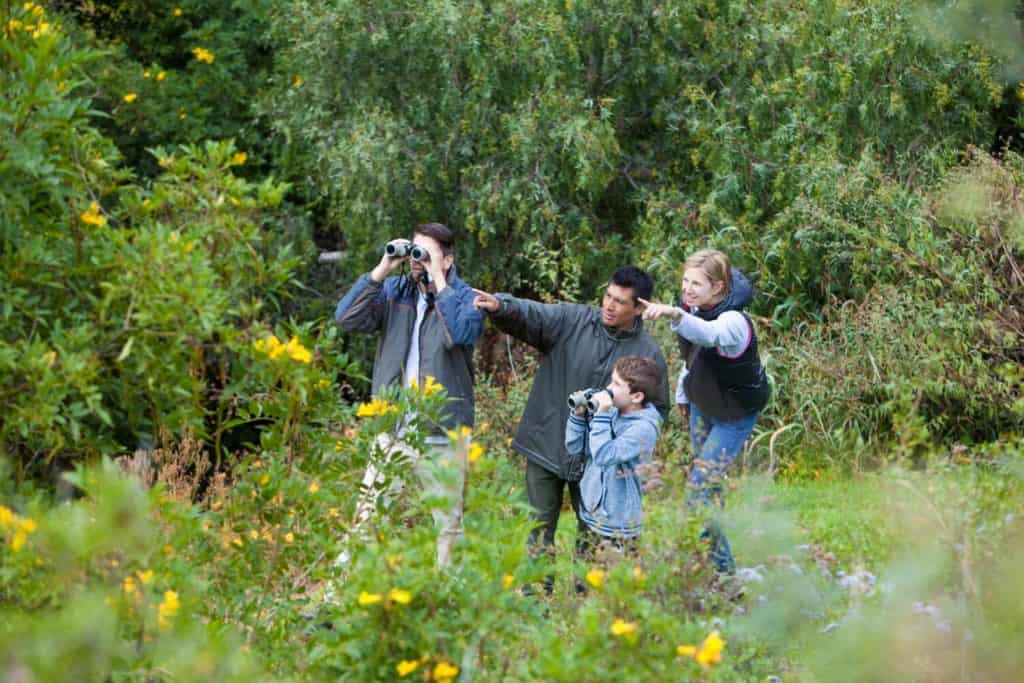
More Tips on How to Be a Responsible Tourist
30 years ago, when international airfares began to become cheaper and people started travelling a lot there were certain ideas about how to be a responsible traveller. While not necessarily badly intentioned, we now realise that more subtlety is required in doing some of these things.
Here are some of the things that you need to think carefully about when being a responsible tourist.
Appropriate Gift-Giving
As a traveller to Peru, you might feel compelled to want to give back while on holiday by bringing gifts for the local people you encounter on your trip, especially those who live in rural communities. This is very noble and the drive to help is one we can definitely sympathize with. However, gifts can often create unintended consequences and spur corruption, jealousy or a begging mentality where none existed before.
Remote Andean communities still live by the concept of ayni, the philosophy and legal principle of reciprocal exchange, or “today for me, tomorrow for you”. Over time, significant gift-giving – without the reciprocal exchange – can break down this fundamental principle of Quechua society. Therefore, while it feels good to give, also consider the long-term implications and what it means for these traditional communities.
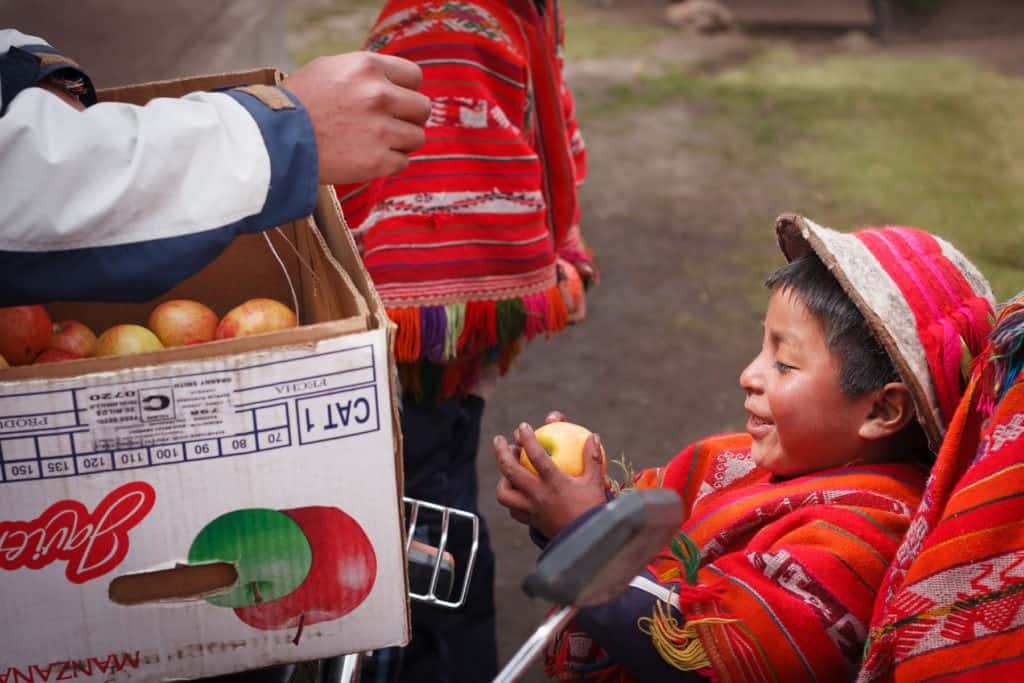
It’s important to critically evaluate your intentions as a responsible traveller, and make sure that the gifts you choose to give are actually going to help. Here are some of our gift recommendations:
| Gifts to Avoid | Recommended Gifts |
|
|
Don’t forget that you are already giving a gift to rural families when you book a trek with Apus Peru! $20 of your trek price is donated to Threads of Peru, a local organization dedicated to providing economic opportunities to rural indigenous women and to preserving the Andean weaving tradition.
Being a Responsible Tourist & Cultural Exchange
Reciprocal cultural exchange can be extremely rewarding but be mindful about what you choose to share. Photos of your home, your brand-new car, or being on holiday could end up emphasizing difference rather than highlighting similarity and promoting solidarity.
Try to understand the intricacies of the local culture. Two examples where we often have to explain the intricacies of local culture are gift-giving (which we have already touched on), and interactions with porters and muleteers on the trail.
Most visitors to Peru who are craving an authentic experience would really like to get to know the people they’re sharing this journey with, including porters and muleteers. We agree that connecting with people from another culture is an amazing and fulfilling experience. However, Quechua people tend to be extremely shy and would prefer to eat, joke, and chat with each other, in their own language. We ask that you please be mindful of these cultural norms, and do not try to force an interaction if it is unwanted.
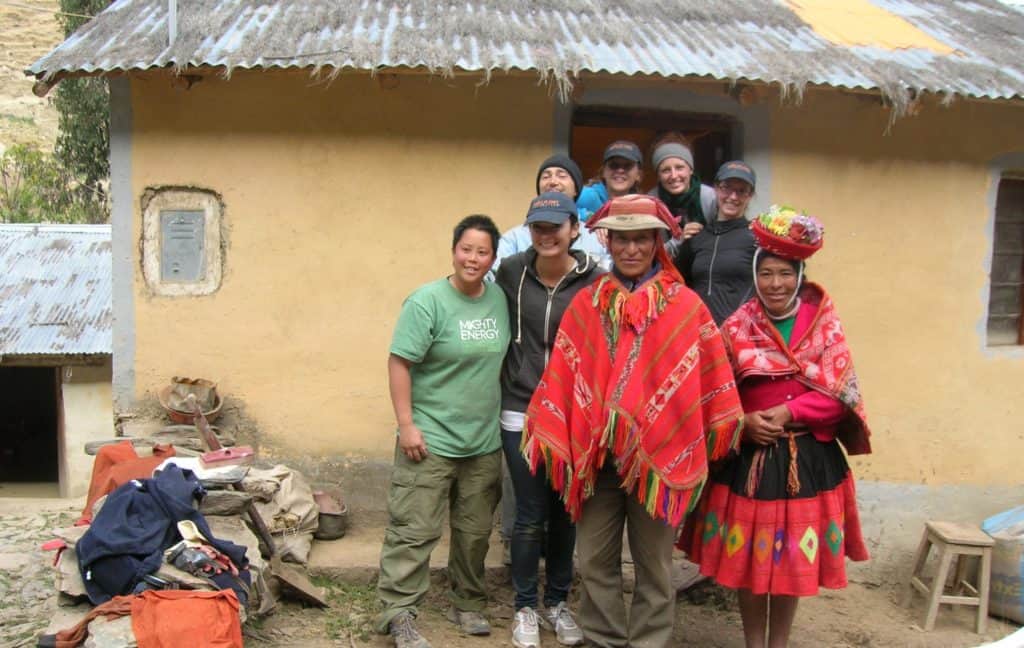
Volunteering vs Voluntourism
In the 80’s and 90’s volunteering was big, and at face value not a bad thing – people giving up their time on holiday to help others. We are not talking about long-term volunteer projects like the Peace Corps or 2-year internships; we are talking about hours to days to a week or so.
But what is the difference between these two concepts? Let’s say that you travel to South America to visit archaeological sites but spend time – from a few hours to several days – at a local village teaching any specific skill. That’s voluntourism. By contrast, if the main purpose of your trip is to work or to serve a specific community or program, what you are doing is volunteering.
Nowadays, voluntourism has become a travel trend, but its real impact – its ability to alleviate poverty or promote systemic change – is actually quite limited. Sometimes it can inadvertently perpetuate the problems you’re trying to improve – or even create new ones. If you can’t see how your volunteer contribution is creating a meaningful impact in the community, you should probably think twice about doing it.
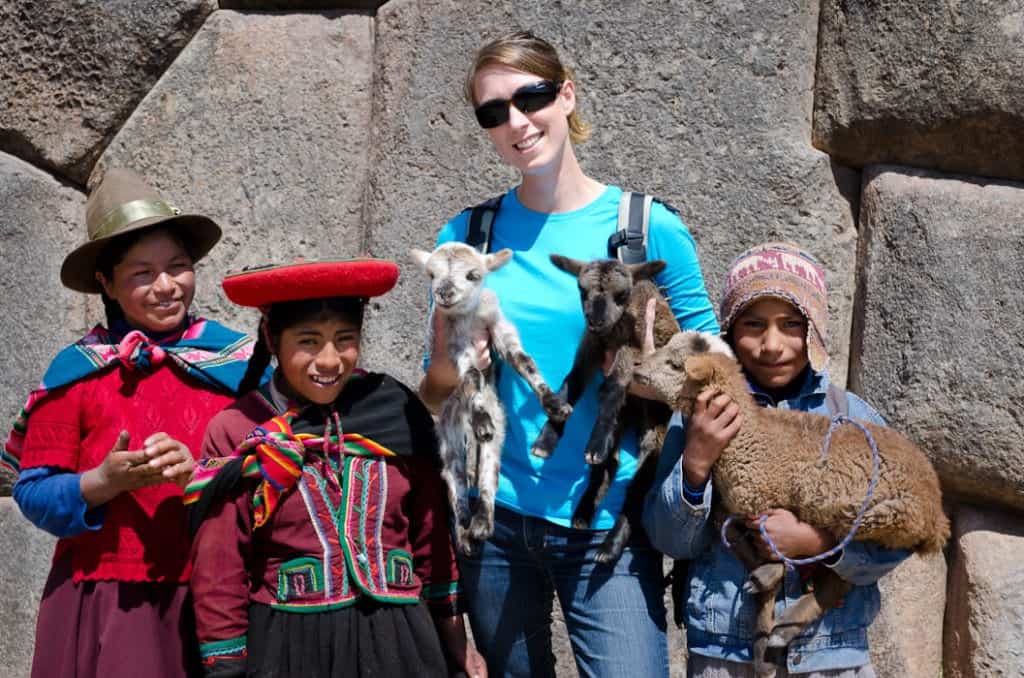
What is a Responsible Tourist? Sustainable Travelling Starts with You
We know that sometimes it is not easy to define what is a responsible tourist, so we hope that after this reading you have a better idea of responsible tourism and how to be a sustainable traveller. If you find yourself in a travel experience where unsustainable tourism practices are carried out, make it a learning experience and keep it in mind for things you should avoid next time.
When you are a responsible tourist, you can tell how locals’ views on visitors change and you will become a new amigo/amiga for them. So, follow these responsible travel tips and you can be a responsible traveller and contribute to sustainable tourism, no matter where you visit!
Like it? Pin it!
Keep Reading:

